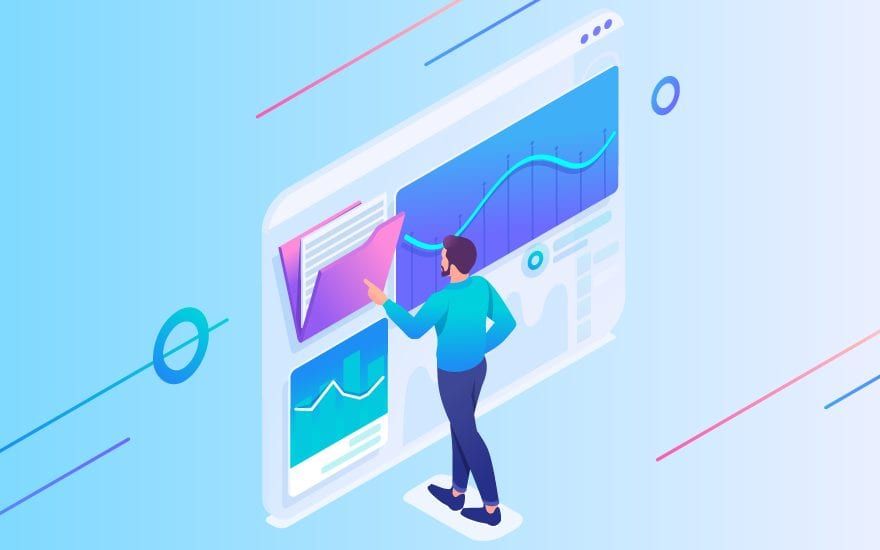Key Takeaways:
- Comprehending the transformative impact of data analytics in contemporary business.
- Exploring the skills and knowledge imparted by an MBA in data analytics program.
- Investigating the role of technology and tools in the data analytics landscape.
- Examining career opportunities unlocked by specializing in data analytics.
- Understanding the potential future developments in predictive analytics and big data.
Introduction
As digital data becomes increasingly integral to strategic decision-making, the demand for leaders with business acumen and analytics prowess is soaring. Industry boundaries are blurring, with data analytics emerging as the common language across many sectors. Recognizing this blend of disciplines, innovative educational programs have risen to prominence, sculpting a new breed of business leaders. These forward-thinking individuals are equipped to interpret vast amounts of data and draw actionable insights that drive business growth and efficiency.
What is Data Analytics in Business?
In the contemporary business environment, data analytics is the foundational element upon which companies can establish and uphold competitive edges. It encompasses collecting, refining, and interpreting datasets to reveal patterns, trends, and correlations crucial for shaping corporate strategies. Through data analytics, businesses attain a more profound comprehension of their operations, clientele, and market dynamics, empowering them to refine processes, allocate investments strategically, and pioneer innovations in their products and services. Pursuing an MBA in data analytics further fortifies professionals with the expertise required to leverage data effectively, enabling them to navigate and excel in the data-driven realm of modern business. The depth and breadth of analytics allow companies to pivot and adapt with agility in rapidly changing environments.
The Evolution of Business Intelligence
The lineage of business intelligence traces back to decision support systems of the past, which technological breakthroughs have since revolutionized. The role of business intelligence has transformed from being a mere repository of historical data to an advanced predictive engine capable of foresight and insight—it has become essential for organizations endeavoring to stay ahead of the curve. As big data’s impact continues redefining BI, it becomes evident that mastering these resources is invaluable for enduring business success.
The Role of Education in Data Proficiency
The rapid pace at which data analytics evolves demands a robust educational foundation that can keep up. Programs specializing in data analytics, notably MBAs, serve as crucibles where theoretical knowledge and practical expertise converge. These programs immerse students in business strategy, statistical analysis, and data technology, creating a holistic educational experience. With data being dubbed the ‘new oil,’ a premium is placed on individuals who can extract its value—a skill set methodically built through rigorous academic coursework and real-world application.
Core Competencies Gained with an MBA in Data Analytics
Embarking on the journey of an MBA with a focus on data analytics equips one with a rich mosaic of competencies. The curriculum typically spans a gamut of subjects, including econometrics, machine learning, business strategy, and ethics in data utilization. Proficiency in these areas is indispensable in today’s data-centric business world. Students emerge with enhanced capabilities to discern patterns, deduce meaningful stories from data, and craft strategies that propel their organizations forward. As a result, they embody the qualities requisite for top-tier management positions, coupling their new-found expertise with leadership that inspires innovation and growth.
Data Analytics in Decision-Making
Data analytics introduces an objective, empirical perspective into the business decision-making process. This perspective gives leaders the confidence to make calculated risks and bold choices underpinned by quantitative evidence. Such informed decision-making is particularly critical in high-stakes scenarios where the margin for error is minute. Incorporating data analytics isn’t about replacing intuition; it’s about complementing it with a solid foundation of facts and patterns that can confirm or challenge assumptions, thus leading to more robust strategies and less volatility in business outcomes.
Technology and Tools: The MBA Toolkit
The tools and technologies available to data analysts are constantly evolving, each innovation offering new ways to dissect and understand data. An MBA program specializing in analytics provides students with hands-on exposure to state-of-the-art software and methodologies in the industry. These tools form the backbone of a data-oriented career, from data mining software to advanced analytics platforms. Moreover, the knowledge of how to leverage these tools post-MBA is instrumental in maintaining relevance in an ever-changing tech landscape, further enhancing the graduate’s value in the workforce.
Career Paths and Opportunities
Career prospects for MBA graduates specializing in data analytics are robust and versatile. From roles such as data scientists and business analysts to more strategic positions like chief data officer, the pathways available are as exciting as they are lucrative. Healthcare, finance, retail, and technology organizations are just some sectors ardently seeking the rare skill set that combines leadership with analytic proficiency. Moreover, an MBA in data analytics amplifies a professional’s ability to rise within the ranks of a corporation and paves the way for entrepreneurship in the burgeoning field of data services.
Challenges and Solutions in Data Analytics
Analytics, despite its promise, has its pitfalls. Data privacy and security remain primary challenges in an age where breaches are costly and damaging to reputations. Therefore, a deft analytics professional must be vigilant, well-versed in ethical practices, and compliant with regulations. This responsibility extends beyond safeguarding data—it encompasses a dedication to using analytics to enhance societal welfare and uphold transparency in business operations.
A Look to the Future: Predictive Analytics and Big Data
The advancement of predictive analytics and big data is shaping the future of data analytics. As businesses yearn for a crystal ball to anticipate market dynamics, professionals skilled in these domains will become pivotal agents of change. Methods like machine learning that enable predictions about customer behavior, market trends, and risk management are becoming the norm rather than the exception. These shifts signal a transformative phase in business intelligence, as illustrated by the predictive href=”https://www.linkedin.com/pulse/power-predictive-analytics-leveraging-data-future-success/” target=”_blank” rel=”noopener noreferrer”>power of predictive analytics, which rapidly changes the corporate playbook and operational strategies.
Conclusion
An MBA specializing in data analytics is more than a degree; it catalyzes leadership transformation in the digital age. The agility, insight, and strategic mindset this education fosters empower professionals to stand at the forefront of innovation, driving data-enabled strategies that distinguish companies in a competitive global market. For those poised to make a difference, such a qualification signifies readiness to harness the vast opportunities presented by the era of big data.



